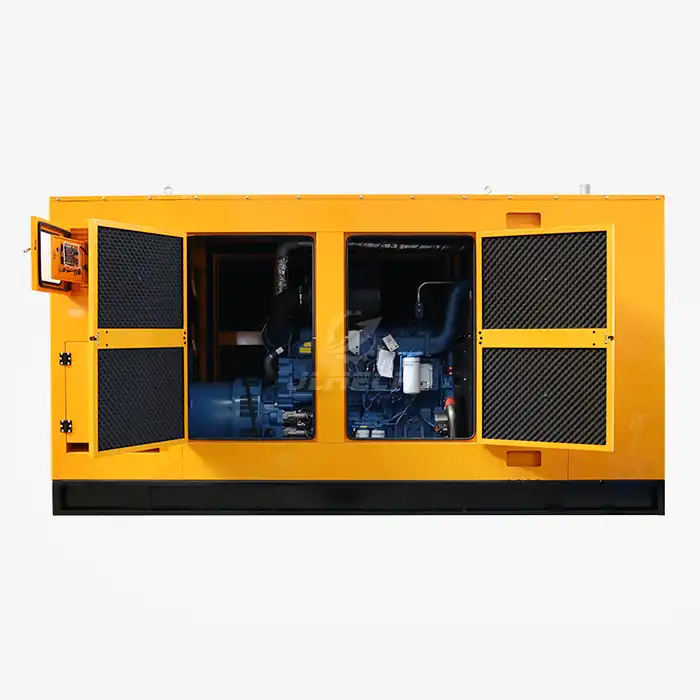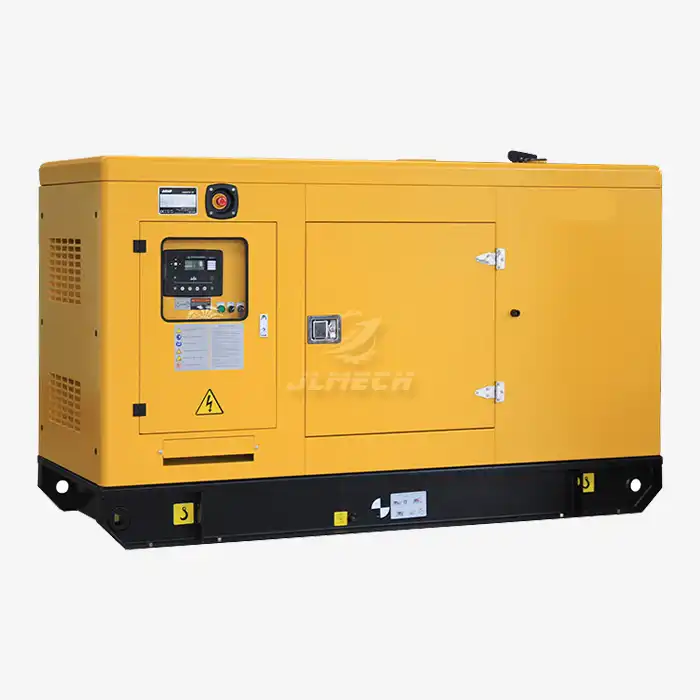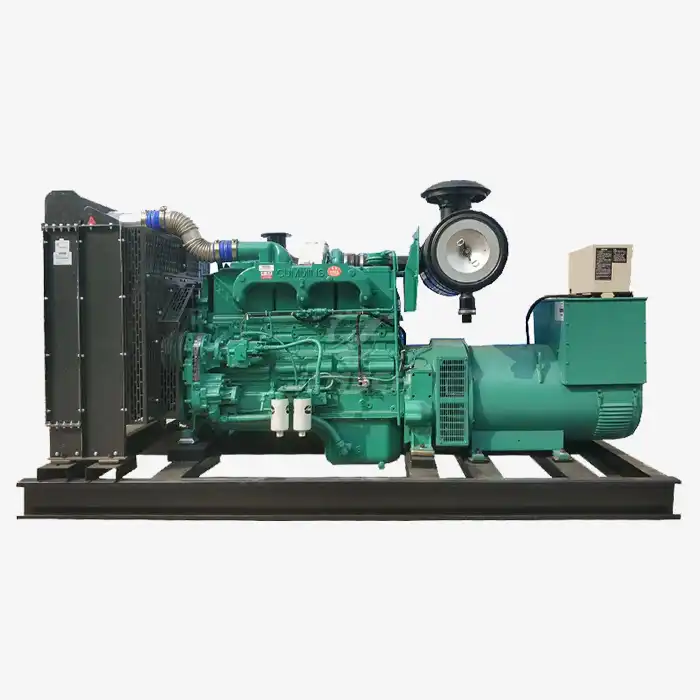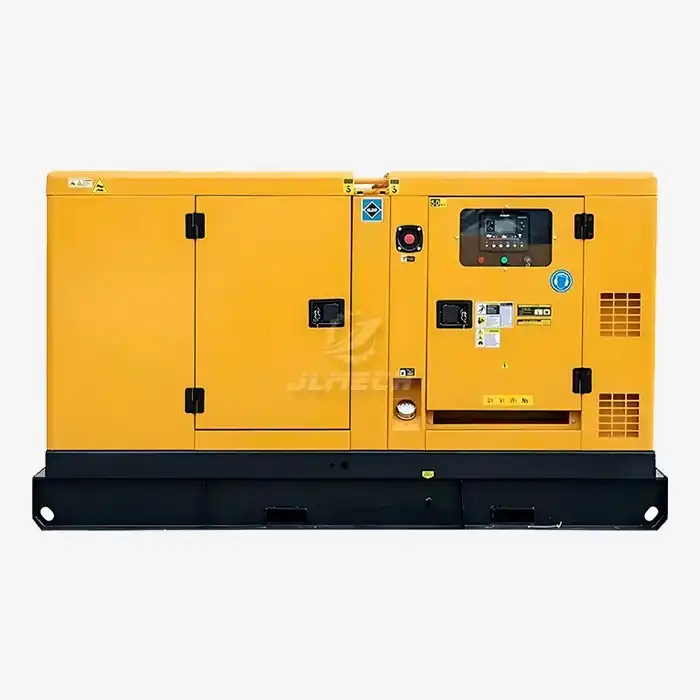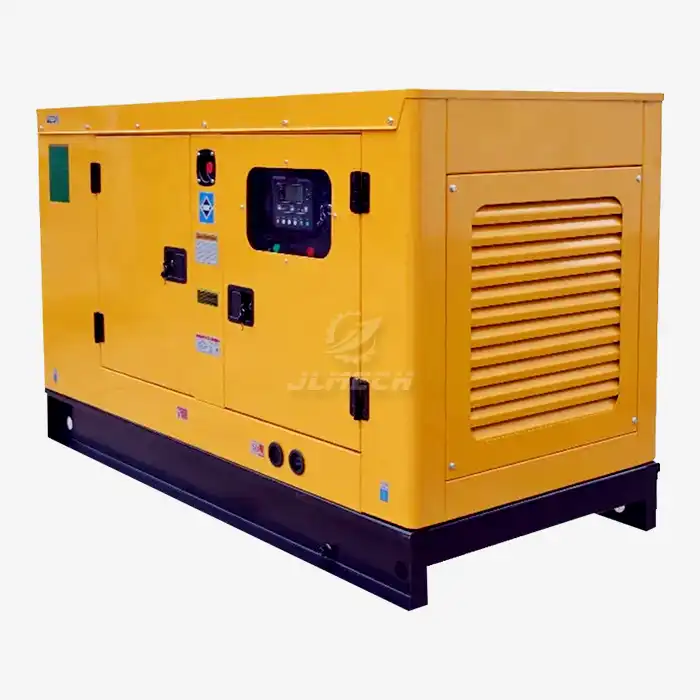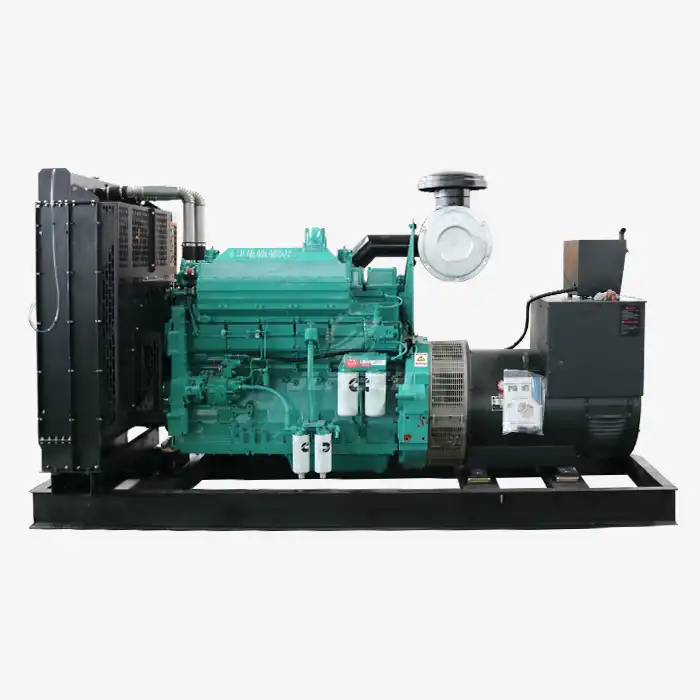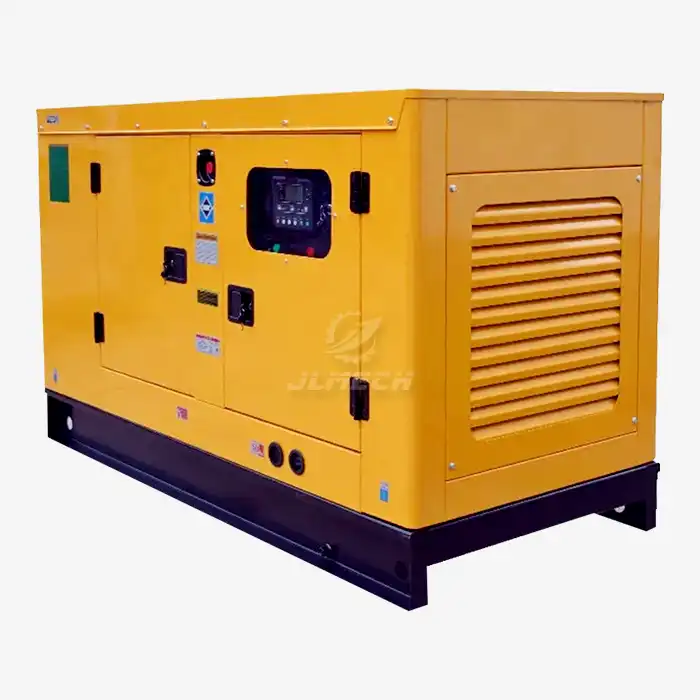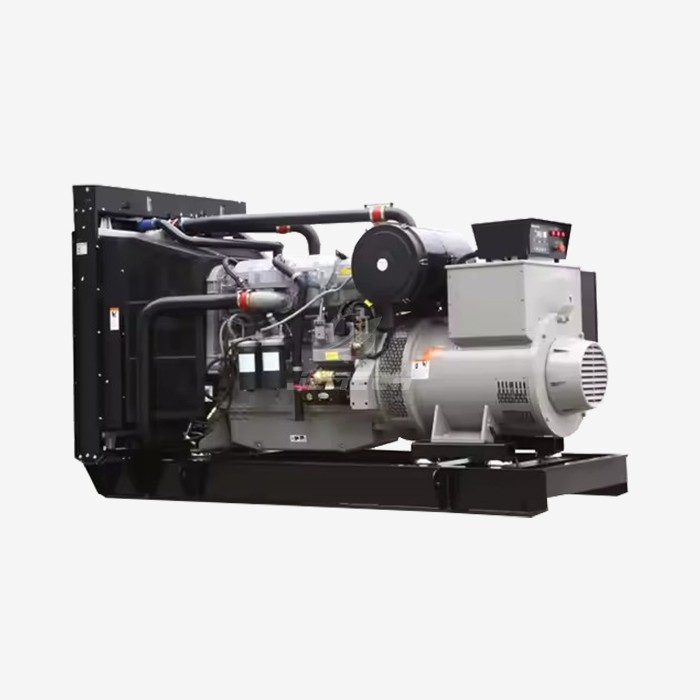How long will a 60kVA generator run?
When planning for backup or prime power, one of the most critical questions is runtime. For businesses and facilities considering a 60kVA generator, understanding its operational duration is essential for ensuring operational continuity during outages or in off-grid scenarios. The runtime of these industrial-grade power solutions isn't determined by a single factor but by a combination of fuel capacity, operational load, generator efficiency, and maintenance practices. Understanding these variables helps you maximize your investment and ensure reliable power when you need it most. While specific runtimes vary by model and application, properly configured 60kVA generators can typically provide extended operation ranging from several hours to multiple days depending on your specific setup and requirements.
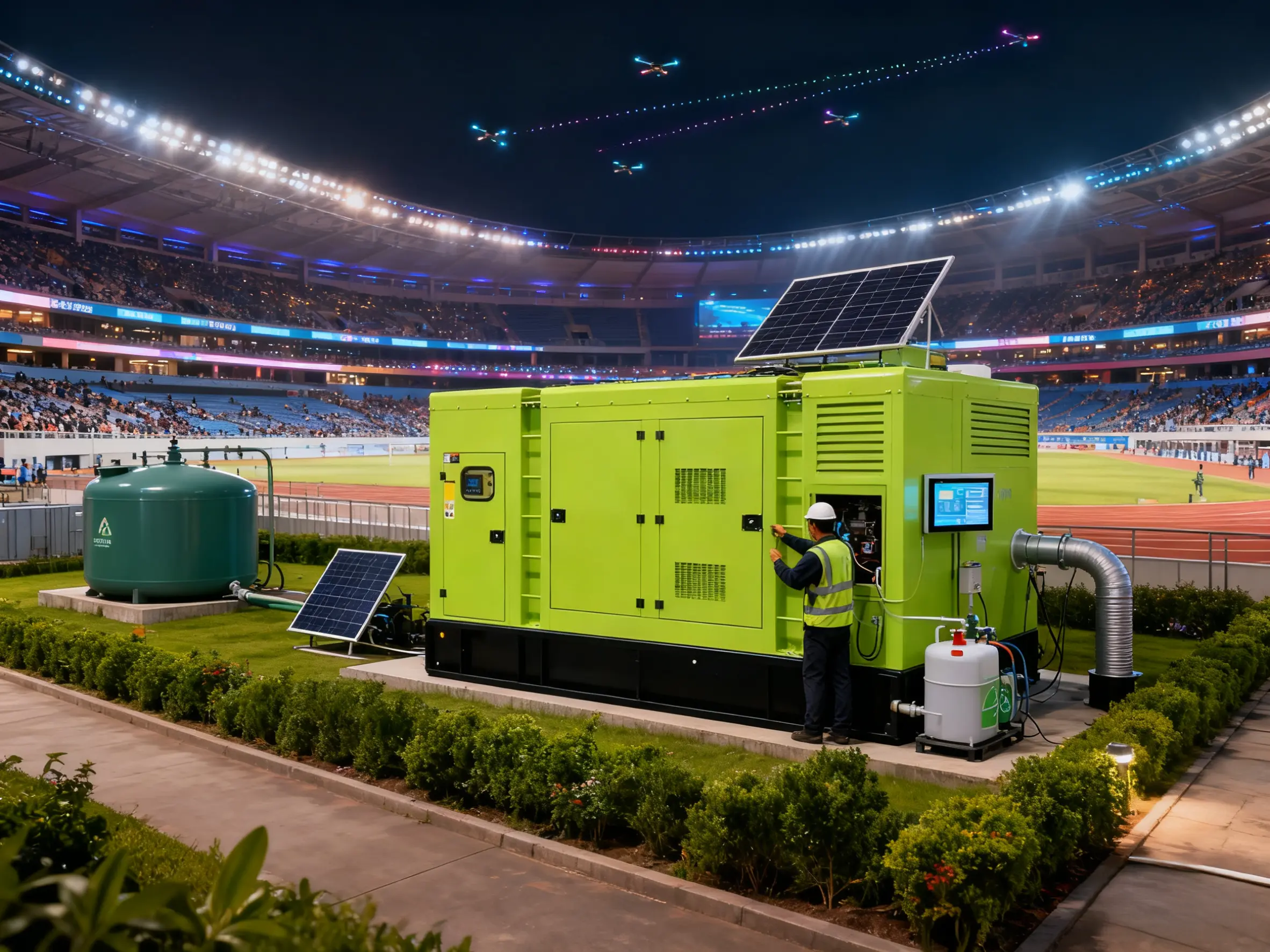
Fuel Capacity and Consumption
The fundamental relationship between fuel capacity and consumption dictates your generator's potential runtime.
Standard Fuel Tank Capacity: Most industrial 60kVA generators come equipped with integrated base tanks ranging from 200 to 500 liters (53-132 gallons), with optional extended tanks available for longer operation.
Fuel Consumption Rates: At full load (approximately 48kW), a diesel-powered 60kVA generator typically consumes between 15-20 liters (4-5.3 gallons) per hour, depending on the specific engine efficiency and design.
Calculating Potential Runtime: With a standard 500-liter tank and consumption of 18 liters/hour at 75% load, theoretical runtime would be approximately 27.7 hours before refueling is needed.
Practical Considerations: Real-world operation requires maintaining a fuel reserve and accounting for potential inefficiencies, typically reducing theoretical runtime by 10-15% for safety margins.
Load Management Impact
Your electrical load significantly influences fuel consumption and consequently, generator runtime.
Load vs. Consumption Relationship: Generator fuel consumption doesn't increase linearly with load but follows a curve where optimal efficiency typically occurs between 70-80% of rated capacity.
Efficiency Tiers:
25% Load: Approximately 8-10 liters/hour consumption
50% Load: Approximately 12-15 liters/hour consumption
75% Load: Approximately 16-19 liters/hour consumption
100% Load: Approximately 20-23 liters/hour consumption
Load Sequencing: Implementing strategic load sequencing—staggering the startup of high-demand equipment—can reduce peak consumption and extend overall runtime by 15-25%.
Generator Efficiency and Design
The inherent efficiency of your specific generator model plays a crucial role in determining runtime per fuel unit.
Engine Technology: Modern electronic fuel injection systems and turbocharged engines in 60kVA generators typically provide 10-15% better fuel efficiency than older mechanical injection systems.
Alternator Efficiency: High-quality alternators with premium materials maintain higher efficiency across various load conditions, reducing overall energy waste.
Design Innovations: Features like advanced combustion chamber design, precision-engineered fuel injection timing, and optimized air intake systems contribute significantly to fuel economy in modern 60kVA generators.
Manufacturer Specifications: Different manufacturers offer varying efficiency ratings, with premium models typically delivering 5-10% better fuel economy than entry-level alternatives.
Maintenance and Environmental Factors
Proper maintenance and operating conditions significantly impact both short-term performance and long-term reliability.
Preventive Maintenance Benefits: A well-maintained generator with clean filters, proper oil quality, and correctly adjusted valves can improve fuel efficiency by up to 8% compared to a poorly maintained unit.
Critical Maintenance Components:
Air filters (clogged filters can increase consumption by 3-5%)
Fuel filters (contamination affects injection precision)
Injectors (worn injectors reduce combustion efficiency)
Cooling system (proper operating temperature maintains optimal efficiency)
Environmental Considerations:
High altitudes reduce air density, potentially increasing fuel consumption by 2-4% per 300 meters above sea level
Extreme temperatures (both hot and cold) can affect fuel density and combustion efficiency
Humidity levels influence air quality for combustion
Applications and Runtime Expectations
Different applications demand varying runtime strategies and present unique operational challenges.
Standby Power Applications: For emergency backup during grid outages, runtime is typically designed for 24-48 hours at 50-70% load, accommodating critical systems only.
Prime Power Applications: For continuous operation as main power source, 60kVA generators require different maintenance schedules and typically feature larger fuel storage solutions or frequent refueling protocols.
Construction Sites: Intermittent operation with varying loads typically allows for 1-2 days of operation between refueling with standard tank sizes.
Agricultural Operations: Seasonal use patterns with moderate loads often enable 3-5 days of operation with standard fuel tanks.
Runtime Extension Strategies
Implementing strategic approaches can significantly extend your generator's operational duration.
Fuel Storage Solutions:
Secondary bulk storage tanks (1,000-5,000 liters)
Automated fuel transfer systems
Fuel polishing systems to maintain quality
Load Management Techniques:
Peak shaving through scheduled equipment operation
Implementation of energy-efficient equipment
Use of building thermal mass to reduce HVAC runtime
System Enhancements:
Automatic fuel management systems
Remote monitoring for optimal performance adjustment
Hybrid systems integrating solar or battery storage to reduce generator runtime
Comparative Analysis
Understanding how 60kVA generators compare to other options provides valuable context for decision-making.
Versus Smaller Units (20-40kVA): While smaller generators consume less fuel per hour, they may operate at higher relative loads, potentially reducing efficiency advantages.
Versus Larger Units (80-100kVA): Larger generators typically have better specific fuel consumption (liters per kWh) but higher absolute consumption, making them more suitable for higher load applications.
Technology Comparisons: Modern 60kVA generators typically offer 15-20% better fuel efficiency than units manufactured 10-15 years ago, highlighting the value of updated technology.
Conclusion
The runtime of a 60kVA generator is a dynamic variable influenced by multiple interconnected factors. While fuel capacity establishes the theoretical maximum, actual operational duration depends heavily on load management, equipment efficiency, maintenance quality, and environmental conditions. Properly configured and well-maintained 60kVA generators can provide reliable power for extended periods, with runtimes typically ranging from 8 hours at full load to several days at moderate loads with appropriate fuel management. Understanding these variables enables you to optimize your power solution for both reliability and operational economy.
Our technical team can provide detailed runtime projections specific to your application and help you select the optimal configuration. For a customized analysis of your power needs, contact our experts at skala@whjlmech.com.
References
- Generator Manufacturers Association. (2021). Guidelines for Rating and Application of Generator Sets. GMA Technical Publication TP-101.
- International Organization for Standardization. (2018). *ISO 8528-1:2018 Reciprocating internal combustion engine driven generating sets — Part 1: Application, ratings and performance*.
- National Fire Protection Association. (2020). NFPA 110: Standard for Emergency and Standby Power Systems.
- Johnson, M. (2022). Emergency Power Systems: A Comprehensive Guide to High-Speed Diesel Generators. Power Engineering Quarterly, 45(3), 78-92.



